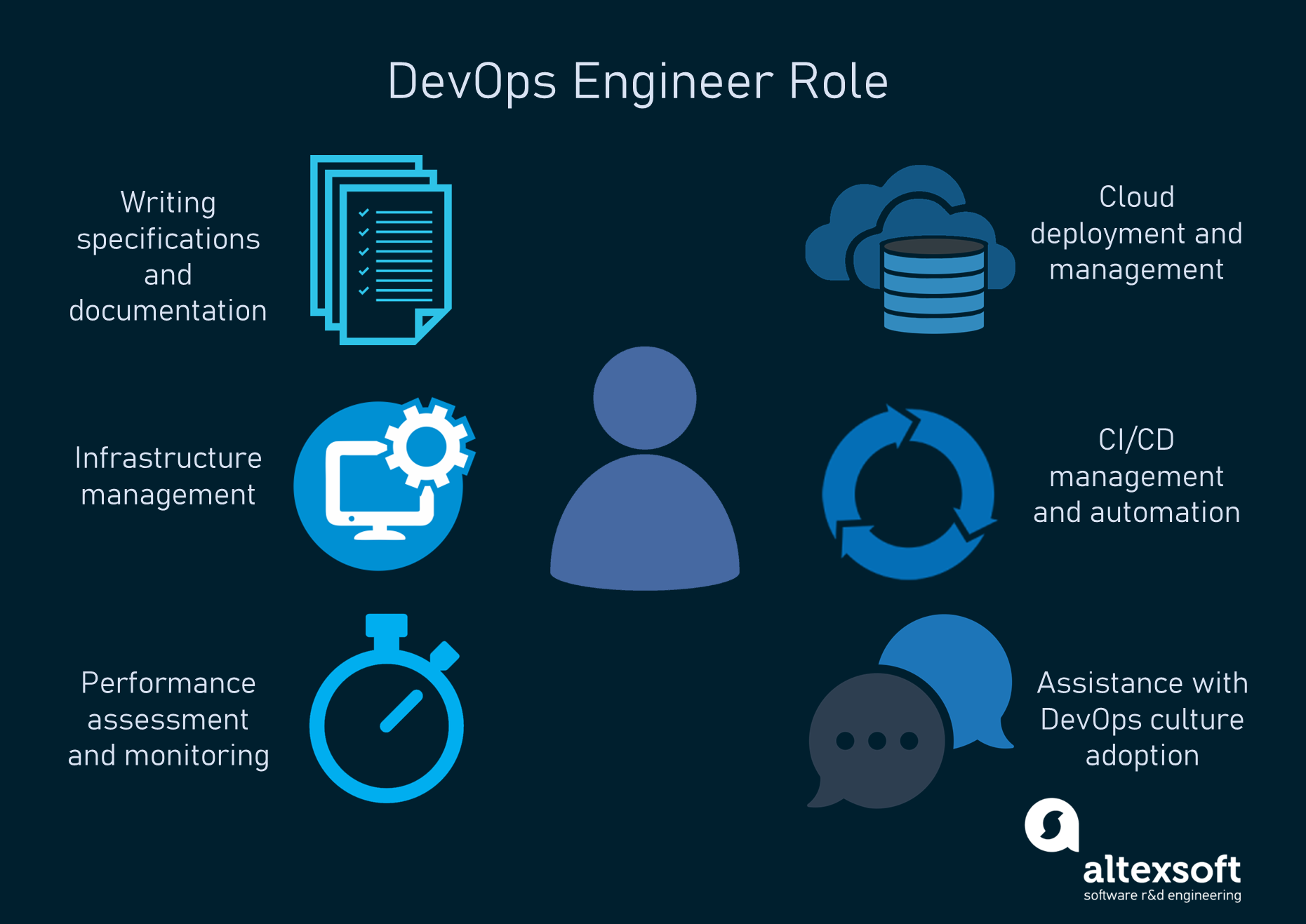In the ever-evolving world of software development and IT operations, the role of DevOps has emerged as a game-changer. DevOps, a combination of “Development” and “Operations,” is a cultural and technical approach that fosters collaboration and integration between software development and IT operations teams. At the heart of this collaboration is the DevOps Engineer, a skilled professional responsible for bridging the gap between development and operations to facilitate seamless and efficient software delivery. In this career guide, we will explore the roles, responsibilities, and skills required to become a successful DevOps Engineer.
Roles and Responsibilities of a DevOps Engineer
- Building and Maintaining Continuous Integration and Continuous Deployment (CI/CD) Pipelines: One of the primary responsibilities of a DevOps Engineer is to establish and manage CI/CD pipelines. These pipelines automate the process of building, testing, and deploying software, enabling rapid and reliable application delivery.
- Infrastructure Automation: DevOps Engineers use tools like Ansible, Puppet, or Chef to automate the provisioning and configuration of infrastructure. Automation ensures consistency and reduces the chances of manual errors in setting up and managing environments.
- Monitoring and Performance Optimization: DevOps Engineers monitor the health and performance of applications and infrastructure. They proactively identify bottlenecks and optimize system performance to ensure high availability and optimal user experience.
- Collaboration with Cross-functional Teams: DevOps Engineers act as a bridge between development, operations, and other teams. They foster collaboration and communication to facilitate the smooth flow of work and resolve any conflicts that may arise.
- Security and Compliance: Ensuring the security and compliance of the software and infrastructure is another critical responsibility of a DevOps Engineer. They implement security best practices and work closely with security teams to address vulnerabilities.
- Troubleshooting and Incident Management: When issues or incidents occur, DevOps Engineers play a vital role in troubleshooting and resolving them promptly. They use their knowledge of systems and applications to identify root causes and implement solutions.
- Continuous Learning and Adaptation: DevOps is an ever-evolving field with new tools and practices constantly emerging. DevOps Engineers must continuously update their skills and stay abreast of the latest trends and technologies to remain effective in their roles.
Skills Required to Become a DevOps Engineer
- Programming and Scripting: DevOps Engineers should be proficient in at least one programming language, such as Python, Ruby, or Go. Knowledge of shell scripting is also essential for automating routine tasks.
- Cloud Computing: Familiarity with cloud platforms like Amazon Web Services (AWS), Microsoft Azure, or Google Cloud Platform (GCP) is crucial for building scalable and flexible infrastructure.
- Configuration Management: DevOps Engineers must be skilled in using configuration management tools like Ansible, Puppet, or Chef to automate infrastructure setup and maintenance.
- CI/CD Tools: Experience with CI/CD tools like Jenkins, GitLab CI/CD, or CircleCI is essential for setting up automated build, test, and deployment pipelines.
- Containerization and Orchestration: Knowledge of containerization technologies like Docker and container orchestration tools like Kubernetes is becoming increasingly important in modern DevOps practices.
- Monitoring and Logging: DevOps Engineers should be proficient in using monitoring and logging tools like Prometheus, Grafana, ELK Stack (Elasticsearch, Logstash, Kibana) to gain insights into system performance and troubleshoot issues.
Conclusion
As the software development landscape continues to evolve, the role of a DevOps Engineer becomes more critical than ever. DevOps practices have proven to enhance collaboration, accelerate delivery, and improve the overall efficiency of software development and IT operations. For individuals passionate about technology, problem-solving, and continuous improvement, a career as a DevOps Engineer offers a challenging yet rewarding path. By mastering the necessary skills and staying updated with the latest industry trends, aspiring DevOps Engineers can play a pivotal role in shaping the future of software delivery and operational excellence.



